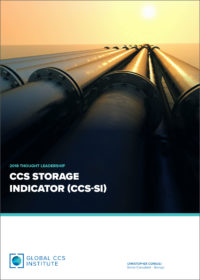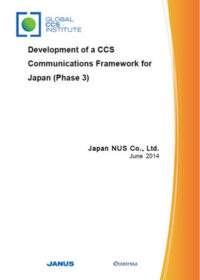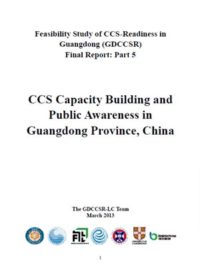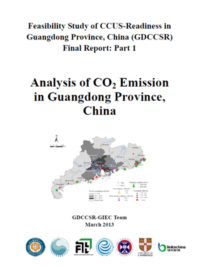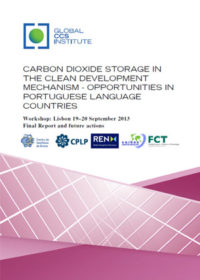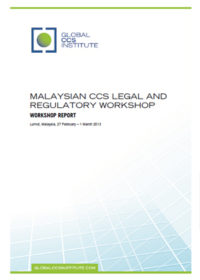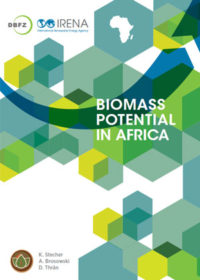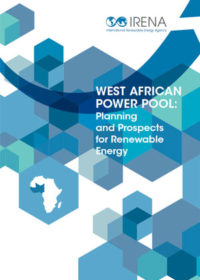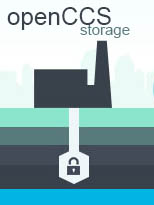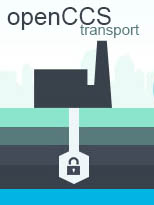Resources
Publications
Our publications, reports and research library hosts over 500 specialist reports and research papers on all topics associated with CCS.
View our Publication Library Disclaimer.
Filter by
CCS Storage Indicator (CCS-SI)
16th October 2018
Topic(s): Capacity development, Carbon capture use and storage (CCUS), Policy law and regulation
The availability of storage resources is the ultimate pre-requisite for CCS deployment. For global CCS deployment, each country needs to know where, and how much, CO2 can be stored. Each nation needs to characterise, explore and appraise a national portfolio of accessible, commercially-viable storage sites ready for CCS Facilities.
The CCS-SI tracks the development of storage resources for 80 countries. The 2018 scores confirm an overall improvement since the 2015 CCS-SI with twelve nations having mature, or near-mature, storage resources to enable wide-scale CCS.
Disclaimer
The content within the Global CCS Institute Publications, Reports and Research Library is provided for information purposes only. We make every effort and take reasonable care to keep the content of this section up-to-date and error-free. However, we make no claim as to its accuracy, currency or reliability.
Content and material featured within this section of our website includes reports and research published by third parties. The content and material may include opinions and recommendations of third parties that do not reflect those held by the Global CCS Institute.
Development of a CCS communications framework for Japan (phase 3)
1st June 2014
Topic(s): Capacity development, Carbon capture use and storage (CCUS), Communication, Public engagement
The Japanese Knowledge Network (JKN) is a group of over 20 organisations sharing knowledge on topics critical to accelerating carbon capture and storage (CCS) in Japan. A key task of the has been to create a framework for communicating CCS to the general public.
This report presents the findings of the third phase of the 'Development of a CCS Communications Framework for Japan’ project. It is a detailed analysis of the tools and methodologies developed by the network to communicate CCS in an accurate and accessible way. The framework was tested with a group of Japanese citizens who critiqued the information and its delivery for relevance and effectiveness.
This report is authored by Japan NUS Co. Ltd. (JANUS), partnered by Quintessa Japan, and supported by Global CCS Institute.
Other Phase Reports
- Developing a CCS communications framework for Japan - Phase 1, August 2011
- A CCS communications framework developed by the Japanese Knowledge Network – Phase 2, October 2013
Disclaimer
The content within the Global CCS Institute Publications, Reports and Research Library is provided for information purposes only. We make every effort and take reasonable care to keep the content of this section up-to-date and error-free. However, we make no claim as to its accuracy, currency or reliability.
Content and material featured within this section of our website includes reports and research published by third parties. The content and material may include opinions and recommendations of third parties that do not reflect those held by the Global CCS Institute.
CCS capacity building and public awareness in Guangdong Province, China
18th October 2013
Topic(s): Capacity development, Carbon capture use and storage (CCUS), Project financing, Public engagement
Based on the outcomes of our study, the GDCCSR project has shown the necessity, and provided feasible solutions, for the development of CCS and CCSR in Guangdong, and drafted a roadmap that includes action plans and policy recommendations. We would like to share our experience in promoting regional CCS developments, enhancing knowledge exchange, and building up local expertise. In order to implement CCS in Guangdong and other parts of China in the future, we consider that extra work is required to disseminate the findings of this project more widely.
The capacity building activities, based on experiences from other researchers, were usually focussed on: workshops; personnel exchange programs; technical assistance for planned pilot CCS activities; information exchange; facilitation of technology transfer; training programs; study tours on regulations and standards; summer school programs; information and knowledge sharing programs; support for feasibility studies; and providing opportunities for engineers to work on CCS demonstration projects. The GDCCSR project team has been working on various activities in Guangdong, such as CCS meetings & workshops, information and knowledge sharing websites & blogs, information exchange with experts from industrial companies, visiting power plants etc. In the future, we are aiming to take further action and employ other methods to continue capacity building activities.
Disclaimer
The content within the Global CCS Institute Publications, Reports and Research Library is provided for information purposes only. We make every effort and take reasonable care to keep the content of this section up-to-date and error-free. However, we make no claim as to its accuracy, currency or reliability.
Content and material featured within this section of our website includes reports and research published by third parties. The content and material may include opinions and recommendations of third parties that do not reflect those held by the Global CCS Institute.
Analysis of CO2 emission in Guangdong Province, China
15th October 2013
Topic(s): Capacity development, Carbon capture use and storage (CCUS), Nuclear energy
There is an agreement reached in China that CCS should be regarded as an important backup low-carbon technology worth more preliminary research. However, the application of CCS in Guangdong depends on the energy usage and model of the province. Therefore an analysis of Guangdong's energy usage and CO2 emission is helpful to decide whether Guangdong needs to explore utilising CCS technology.
In this report, we first assessed the energy consumption and CO2 emission status of the Guangdong Province based on published data. Then the emission characteristics and trends of major point sources are analysed. Finally the source to sink match analysis is carried out. All these will provide bases for the feasibility study of developing CCS in Guangdong and for compiling the CCS development roadmap for Guangdong.
Disclaimer
The content within the Global CCS Institute Publications, Reports and Research Library is provided for information purposes only. We make every effort and take reasonable care to keep the content of this section up-to-date and error-free. However, we make no claim as to its accuracy, currency or reliability.
Content and material featured within this section of our website includes reports and research published by third parties. The content and material may include opinions and recommendations of third parties that do not reflect those held by the Global CCS Institute.
Carbon dioxide storage in the Clean Development Mechanism: opportunities in Portuguese language countries. Workshop: Lisbon 19-20 September 2013. Final report and future actions
20th September 2013
Topic(s): Capacity development, Carbon capture use and storage (CCUS), CO2 storage
The first workshop about cooperation on carbon dioxide capture and storage (CCS) among the community of Portuguese language countries (the CPLP) was held in Lisbon, on the 19th and 20th of September 2013, at the CPLP headquarters. The workshop focused on the dissemination of knowledge about CCS, discussion around the current stage of development of the technology and identification of opportunities for cooperation among the CPLP countries. The programme of the workshop is included in Annex A.
Disclaimer
The content within the Global CCS Institute Publications, Reports and Research Library is provided for information purposes only. We make every effort and take reasonable care to keep the content of this section up-to-date and error-free. However, we make no claim as to its accuracy, currency or reliability.
Content and material featured within this section of our website includes reports and research published by third parties. The content and material may include opinions and recommendations of third parties that do not reflect those held by the Global CCS Institute.
Workers wanted: the EU wind energy sector skills gap
1st August 2013
Topic(s): Capacity development, Education, Public engagement, Wind energy
In June 2013 the European Council agreed on a comprehensive approach to combat youth unemployment. This report shows that the European wind industry can play a key role in combatting unemployment.
Disclaimer
The content within the Global CCS Institute Publications, Reports and Research Library is provided for information purposes only. We make every effort and take reasonable care to keep the content of this section up-to-date and error-free. However, we make no claim as to its accuracy, currency or reliability.
Content and material featured within this section of our website includes reports and research published by third parties. The content and material may include opinions and recommendations of third parties that do not reflect those held by the Global CCS Institute.
Malaysian CCS legal and regulatory workshop. Workshop report: Lumut, Malaysia, 27 February – 1 March 2013
8th July 2013
Topic(s): Capacity development, Carbon capture use and storage (CCUS)
The CCS legal and regulatory workshop was held in Lumut, Malaysia, on 28 February–1 March 2013. The workshop aimed to identify how a CCS project would be regulated under existing regulatory pathways in Malaysia. The analysis will help identify regulatory gaps, overlaps and areas to be improved for a potential CCS project to go ahead in Malaysia in the future. The workshop focused on identifying issues for, and suggesting approaches to, further discussion.
Disclaimer
The content within the Global CCS Institute Publications, Reports and Research Library is provided for information purposes only. We make every effort and take reasonable care to keep the content of this section up-to-date and error-free. However, we make no claim as to its accuracy, currency or reliability.
Content and material featured within this section of our website includes reports and research published by third parties. The content and material may include opinions and recommendations of third parties that do not reflect those held by the Global CCS Institute.
Biomass potential in Africa
17th June 2013
Topic(s): Biofuels / Bioenergy, Capacity development, Renewables
This report focuses on bioenergy in Africa, as this form of renewable energy represents almost 50% of the total primary energy supply for the African continent, and more than 60% of the Sub-Saharan TPES. Bioenergy is a strategic asset for Africa’s energy future and needs to be assessed in a transparent manner.
At IRENA’s behest, the German Biomass Research Centre has collected recent studies assessing bioenergy potential in Africa, compared their various methodologies, benchmarked the results, and identified the key dimensioning elements for those assessments.
Disclaimer
The content within the Global CCS Institute Publications, Reports and Research Library is provided for information purposes only. We make every effort and take reasonable care to keep the content of this section up-to-date and error-free. However, we make no claim as to its accuracy, currency or reliability.
Content and material featured within this section of our website includes reports and research published by third parties. The content and material may include opinions and recommendations of third parties that do not reflect those held by the Global CCS Institute.
West African power pool: planning and prospects for renewable energy
1st June 2013
Topic(s): Capacity development, Renewables
With the energy systems of many African countries dominated by fossil-fuel sources that are vulnerable to global price volatility, regional and intra-continental power systems with high shares of renewable energy can provide least-cost option to support continued economic growth and address the continent’s acute energy access problem. Unlocking Africa’s huge renewable energy potential could help to take many people out of poverty, while ensuring the uptake of sustainable technologies for the continent’s long-term development.
This report examines various scenarios for accelerated renewable energy uptake, based on a modelling tool developed by IRENA and tested with assistance from the Economic Community of West African States (ECOWAS). Initial results from the System Planning Test model for West Africa covering all continental ECOWAS countries, show that the share of renewable technologies in the region could increase from the current 22% of electricity generation to as much as 52% in 2030, provided that the cost of these technologies continues to fall and fossil fuel prices continue to rise. In this scenario, nearly half of the envisaged capacity additions between 2010 and 2030 would be with renewable technologies.
Disclaimer
The content within the Global CCS Institute Publications, Reports and Research Library is provided for information purposes only. We make every effort and take reasonable care to keep the content of this section up-to-date and error-free. However, we make no claim as to its accuracy, currency or reliability.
Content and material featured within this section of our website includes reports and research published by third parties. The content and material may include opinions and recommendations of third parties that do not reflect those held by the Global CCS Institute.
Building capacity for CO2 capture and storage in the APEC region: A training manual for policy makers and practitioners
1st June 2013
Topic(s): Capacity development, Carbon capture use and storage (CCUS)
This APEC training package is designed to assist APEC member economies to understand the potential of CO2 Capture and Storage (CCS), as well as the science and process involved in identifying and implementing a CCS project.
Disclaimer
The content within the Global CCS Institute Publications, Reports and Research Library is provided for information purposes only. We make every effort and take reasonable care to keep the content of this section up-to-date and error-free. However, we make no claim as to its accuracy, currency or reliability.
Content and material featured within this section of our website includes reports and research published by third parties. The content and material may include opinions and recommendations of third parties that do not reflect those held by the Global CCS Institute.
openCCS: Storage
28th May 2013
Topic(s): Capacity development, Carbon capture use and storage (CCUS), CO2 storage
openCCS is the handbook for delivering CCS projects brought to you by the Global CCS Institute. It has been built to guide you through the key processes and steps needed to deliver each component of an integrated CCS project. It’s a platform for sharing methodologies, best practices and lessons learnt from experience.
The Storage Section of the openCCS handbook contains:
Site Screening Studies
- Define screening basis
- Develop screening plan
- Review available data and identify potential sites
- Estimate capacity and level of uncertainty
- Shortlist storage sites
Site Assessment Studies
- Obtain exploration permit
- Define selection basis and develop selection plan
- Acquire data, test, analyse, rank risks
- Select site and engineering concept
Site Selection Studies
- Specify performance targets
- Prepare CO2 storage development plan
- Evaluate compliance with regulations and qualification goal
- Obtain storage permit
Design and (Initial) Construct
- Select construction contractor and delivery approach for (initial) storage assets (i.e. EPC)
- Complete the design detail for building the (initial) storage assets (i.e. wells, feeder piping)
- Build the organisation and systems to manage the storage assets
- Build the (initial) transport asset
- On time
- On budget
- To scope and quality
- Commission the (initial) storage assets to operating state
Operate (Remaining Construct)
- Operate the storage assets to achieve required performance over asset life
- Develop plan for permit review/re-qualification
- Reassess risks
- Adjust performance targets
- Adjust CO2 storage development plan
- Storage permit renewal
- Complete the design detail for building the (remaining) storage assets (i.e. wells, feeder piping)
- Select construction contractor and delivery approach for (remaining) storage assets (i.e. EPC)
Close
- Assess if conditions for site closure have been met
- Define closure basis
- Develop closure plan
- Update storage performance forecast and environmental impact assessment
- Obtain certificate of fitness for closure
- Initiate decommissioning
- Transfer of responsibility for site
Disclaimer
The content within the Global CCS Institute Publications, Reports and Research Library is provided for information purposes only. We make every effort and take reasonable care to keep the content of this section up-to-date and error-free. However, we make no claim as to its accuracy, currency or reliability.
Content and material featured within this section of our website includes reports and research published by third parties. The content and material may include opinions and recommendations of third parties that do not reflect those held by the Global CCS Institute.
openCCS: Transport
28th May 2013
Topic(s): Capacity development, Carbon capture use and storage (CCUS), CO2 transport
openCCS is the Global CCS Institute’s project delivery handbook. It has been built to guide you through the key processes and steps needed to deliver each component of an integrated CCS project. It’s a platform for sharing methodologies, best practices and lessons learnt from experience.
The Transport Section of the openCCS handbook contains:
Concept Studies
- Consider pipeline or other CO2 transport options
- Consider existing or new transport route
- Consider single or multi-user transport route
- Estimate order of magnitude costs of the project (both capital (+/-30-35% accuracy) and operating (+/-15-20% accuracy))
Prefeasibility Studies
- Consider different transport routes
- Recommend the preferred transport route and capacity for final study
- Estimate costs of the project (both capital (+/-20-25% accuracy) and operating (+/-10-15% accuracy))
Feasibility Studies
- Undertake front end engineering design (FEED) studies, clearly recommending one transport route
- Estimate costs (both capital (+/-10-15% accuracy) and operating (+/-5-10%; closer to 5% accuracy))
- Select construction contractor and delivery approach (i.e. EPC)
- Obtain all required regulatory approvals
- Make final investment decision for construction of transport facilities
Project Execution
- Complete the design detail for building the transport asset
- Build the organisation and systems to manage the transport asset
- Build the transport asset
- On time
- On budget
- To scope and quality
- Commission the transport asset to operating state
Asset Operation
- Operate the transport asset to achieve required performance over asset life
- Maintain the transport asset to achieve required asset life
- Modify the transport asset to comply with legislated regulatory changes
- Modify the transport asset to realise identified opportunities
Asset Decommissioning
- Operation of asset (i.e. pipeline) ceased
- Modify the asset (as necessary) to achieve required decommissioned state
- On time
- On budget
- To scope and quality
- Asset sites decommissioned and rehabilitated to required condition
- Establish organisation for post-closure stage (as necessary)
Disclaimer
The content within the Global CCS Institute Publications, Reports and Research Library is provided for information purposes only. We make every effort and take reasonable care to keep the content of this section up-to-date and error-free. However, we make no claim as to its accuracy, currency or reliability.
Content and material featured within this section of our website includes reports and research published by third parties. The content and material may include opinions and recommendations of third parties that do not reflect those held by the Global CCS Institute.
